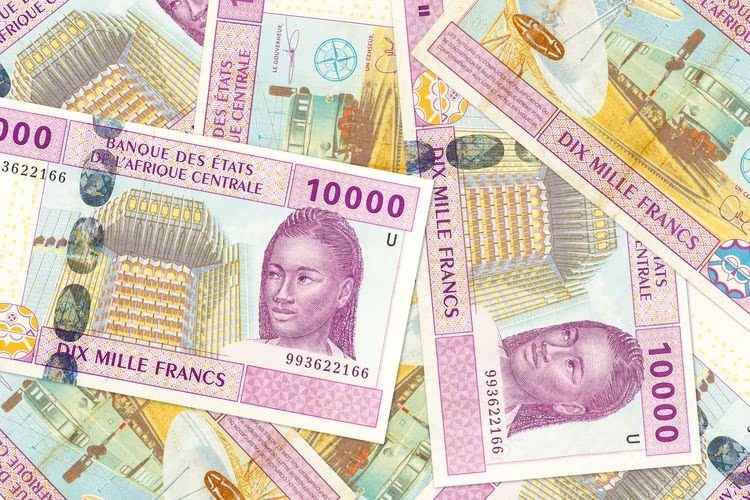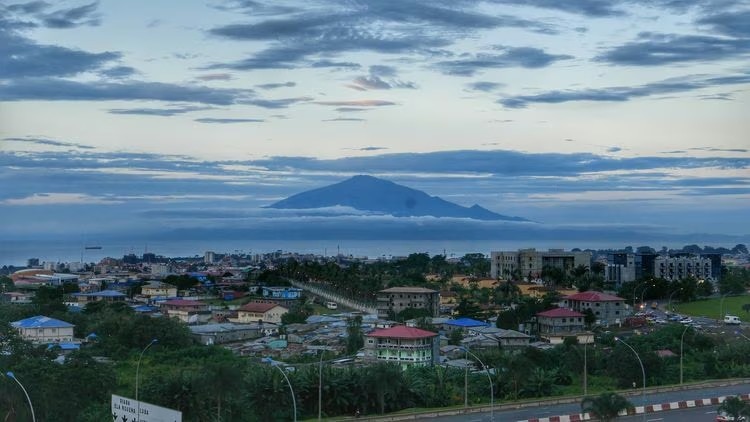Equatorial Guinea Travel Tips and Information

Origin of Image source: shutterstock.com
Official Name
Republic of Equatorial Guinea
Capital
Malabo
Population
Country Code
Approximately 1.9 million
GQ
Country Code (international calls)
+240
The flight time to Equatorial Guinea is approximately ---- hours. Check the climate, currency, religion, manners, other information of Equatorial Guinea below. Wishing you pleasant travels to Equatorial Guinea.
Equatorial Guinea is a country located in Central Africa, known for its Spanish architecture and tropical forests that are home to many exotic animals.
Local Climate / Weather
Equatorial Guinea experiences a tropical climate, characterized by warm temperatures and high humidity throughout the year. The country’s climate is heavily influenced by its equatorial location, resulting in two distinct seasons: the wet and dry seasons. The wet season typically runs from March to October, bringing heavy rainfall, especially in coastal regions and the island of Bioko, where Malabo, the capital, is located. The dry season spans November to February, offering more favorable weather for travel, with sunny days and less humidity, making it the ideal time for visitors seeking outdoor activities, wildlife exploration, or beach relaxation. When planning a trip to Equatorial Guinea, it’s essential to consider seasonal variations. The wet season, while lush and green, can make certain areas more challenging to access due to muddy roads and flooding. However, this period is also a prime time for nature lovers, as the rainforests are at their most vibrant, and wildlife spotting is at its peak. Conversely, the dry season is perfect for sightseeing, hiking, and cultural exploration, as the weather is more predictable, and many tourist sites remain easily accessible. Travelers should pack appropriately for the season, with waterproof gear for the wet months and lightweight, breathable clothing for the warmer dry season. Equatorial Guinea’s culture is rich and celebrated through a variety of festivals and events, which add vibrancy to any trip. One of the major annual highlights is the Independence Day celebration on October 12, marked by parades, music, and traditional dance performances that showcase the nation’s heritage. The Malabo International Music and Film Festival is another key event, drawing artists and audiences from across Africa and beyond. Additionally, smaller local festivals, such as tribal ceremonies and religious observances, provide a unique opportunity for visitors to immerse themselves in the diverse traditions of this fascinating country.
Currency & Tipping
Currency
The official currency of Equatorial Guinea is the Central African CFA Franc (XAF), which is shared by several countries in Central Africa. The CFA Franc is subdivided into 100 centimes and comes in a variety of banknotes and coins. Banknotes are available in denominations of 500, 1,000, 2,000, 5,000, and 10,000 francs, while coins range from 1 to 500 francs. The CFA Franc is pegged to the Euro, providing some stability in exchange rates, which can be reassuring for travelers budgeting their trip.
Tipping
Tipping in Equatorial Guinea is not an entrenched cultural practice but is appreciated in service-oriented industries. In restaurants, rounding up the bill or leaving a small tip of about 5-10% is considered a nice gesture, especially in tourist-friendly establishments. For hotel staff, taxi drivers, or tour guides, small tips are also welcomed for good service. All travelers, accustomed to tipping as a token of gratitude, will find this custom similar but less emphasized in Equatorial Guinea. Always carry small denominations to make tipping convenient when needed.
Useful Travel Information

Voltage & Electrical Outlets
The standard voltage is 220V, and the outlets use the European-style Type C or Type E plugs, with two round pins. All travelers should check their devices for compatibility with this voltage and outlet type; if your gadgets only support 110V, you’ll need a voltage converter. A universal travel adapter is also highly recommended to ensure your devices stay charged throughout your trip.

Internet Connectivity
The internet environment in Equatorial Guinea is relatively basic and can be inconsistent in terms of speed and availability. While larger cities like Malabo and Bata offer internet access through hotels, cafes, and business centers, rural areas often have limited connectivity. Mobile data is a viable alternative, with local SIM cards available from providers such as Getesa or Muni. However, coverage outside urban areas may be spotty, so plan your online needs accordingly and download essential information before traveling to remote locations.
Water for Consumption (Drinking Water)
Drinking water in Equatorial Guinea is not considered safe for direct consumption, and travelers are advised to rely on bottled water, which is widely available in cities and towns. Avoid tap water, even for brushing your teeth, and steer clear of ice in drinks unless you are certain it was made with purified water. Bringing a portable water purifier or water purification tablets can be a good idea, especially for travelers venturing into more remote areas. Prioritizing safe hydration practices will help ensure a healthy and enjoyable trip.
Culture, Religion & Social Etiquette
Culture
Equatorial Guinea boasts a rich and diverse culture deeply influenced by its ethnic groups, such as the Fang, Bubi, and Ndowe, as well as its colonial history under Spain. Traditional music, dance, and storytelling play a central role in everyday life, with vibrant drum rhythms and intricate dances often seen during celebrations. All travelers, who share a love for family-oriented traditions, will appreciate the warm and communal spirit that underpins Equatorial Guinea’s cultural practices. Additionally, Spanish remains a prominent language, making it easier for travelers familiar with Spanish influences to connect with locals.
Religion
Religion is an integral part of life in Equatorial Guinea, with Christianity being the dominant faith. The majority of the population practices Roman Catholicism, reflecting the country’s Spanish colonial heritage, while Protestantism and indigenous beliefs are also present. All travelers, predominantly Christian themselves, may find familiar customs, such as attending church services or observing religious festivals, which provide an opportunity for cultural connection. It’s worth noting that religious observance is deeply respected, and visitors should be mindful of local customs during significant holidays and events.
Social Etiquette
Manners in Equatorial Guinea emphasize respect, politeness, and a sense of community, which resonate well with all travelers. Greetings are particularly important; a handshake combined with a friendly inquiry about one’s health or family is customary when meeting someone. However, modesty in dress and demeanor is appreciated, especially in more traditional settings. When visiting someone’s home or partaking in local events, small gestures of gratitude, such as bringing a gift, are always well-received.
Food Culture
Equatorial Guinea's food culture is a vibrant blend of African, Spanish, and Creole influences, offering travelers a unique culinary experience. Traditional dishes often feature fresh seafood, plantains, yams, and rice, with rich stews like pepesup (spicy fish soup) showcasing the country’s flavors. Street food is an integral part of the dining scene, with grilled meats, fried plantains, and cassava readily available for those seeking quick and authentic bites. For a more refined experience, travelers can visit local restaurants in cities like Malabo and Bata, such as La Luna or Café Malabo, which serve a mix of local and international dishes. Whether exploring bustling street markets or dining at cozy eateries, the cuisine of Equatorial Guinea offers something for every palate.
Major Tourist Attractions & UNESCO World Heritage Sites
Major Tourist Attractions
Equatorial Guinea is a hidden gem for travelers seeking unique destinations off the beaten path. The island of Bioko, home to the capital city Malabo, boasts stunning volcanic landscapes, pristine beaches like Arena Blanca, and lush rainforests teeming with wildlife. Adventure seekers can explore the Monte Alén National Park on the mainland, a haven for hiking and wildlife spotting, where gorillas, chimpanzees, and elephants roam freely. For a tranquil escape, Corisco Island offers crystal-clear waters and untouched shores perfect for relaxation. Travelers who love nature and adventure will find these destinations ideal for immersing themselves in the beauty and serenity of Equatorial Guinea.
UNESCO World Heritage Sites
Equatorial Guinea is home to cultural and natural treasures that reflect its rich heritage and biodiversity. The Ureka waterfalls on Bioko Island are not officially listed as a UNESCO World Heritage Site but are often considered a must-visit for their breathtaking beauty and significance to the local ecosystem. The lush rainforests of Monte Alén National Park, while also awaiting UNESCO recognition, offer visitors a glimpse into the untouched biodiversity of Central Africa. These destinations, coupled with their cultural importance and ecological value, make Equatorial Guinea a fascinating place to explore for travelers seeking an authentic and enriching travel experience.
Voice of Travelers to Equatorial Guinea
I had a fantastic time in Equatorial Guinea
I live in Germany so last winter I decided to escape the cold and travel to Africa. My boyfriend and I went to a local travel agency and organised a hotel and ticket for Equatorial Guinea. The agency booked our ticket with Qatar Airways. We were very pleasantly surprised with the flight and were very glad about our choice for the plane ticket. We arrived safely in Equatorial Guinea. Our hotel was amazing, the people were very friendly and recommended us a local guide to explore Equatorial Guinea. We got a ticket to all the museums and local concerts. The weather was a very welcome change from the freezing winter in Germany. We were very glad about our decision and would love to go back.
Wonderful landscapes
Last winter my family and I decided to go on a holiday to Equatorial Guinea. We live in London so no direct flight ticket was available. We managed to book a stop-over ticket online with AirFrance. We got a great deal for our ticket and booked our hotel. Equatorial Guinea is gorgeous. The views you see from the mountains are unforgettable and very tranquil. Pico Basilé, Monte Alén National Park, Corisco are all places you must see when travelling to Equatorial Guinea. The exotic beaches and wonderful forests are only part of what Equatorial Guinea has to offer. If you live in a place where the winter gets way too cold and boring, a ticket to Equatorial Guinea is your perfect getaway. We were very glad about our plane ticket decision and airline.
Heavenly nature
For all of you who want a break from the city, Equatorial Guinea is the ideal destination. We got a great deal for our ticket from Italy - we booked our ticket with AirFrance. Relaxing on the beaches, trying traditional food, buying a ticket for all the local events and amazing peaks and mountains - it was heavenly. We had a little trouble since one of my friends lost her return ticket somehow but that situation was handled very well and she easily got a new ticket. We all loved Equatorial Guinea and would definitely recommend it.
Travel FAQs
What is the safety situation in Equatorial Guinea like? What should I be careful of?
Equatorial Guinea is generally safe for travelers, but travelers should exercise caution due to occasional petty crimes like pickpocketing and rare instances of robbery. It's advisable to avoid isolated areas, especially after dark, and to be vigilant in crowded places.
How long before departure should I arrive at the airport?
As a general guideline for international flights, you should arrive two hours before departure. When you arrive at the airport, you will need to check in, drop off your luggage, go through baggage inspection, and go through immigration.
What are the departure procedures at the airport?
If you are traveling abroad for the first time, you may be worried about what to do at the departure procedure, but it is not particularly difficult. All you have to do is present your passport and have the departure stamp pressed. Generally, you will not be asked any questions.
What should I do after checking in and going through immigration at the airport until boarding the plane?
It is generally recommended to plan your trip with plenty of time, so there will usually be a little time between check-in and immigration before boarding the plane. In that case, why not kill time by shopping or eating at the duty-free shops in the airport? It is also recommended to enjoy watching various planes take off and land up close.



